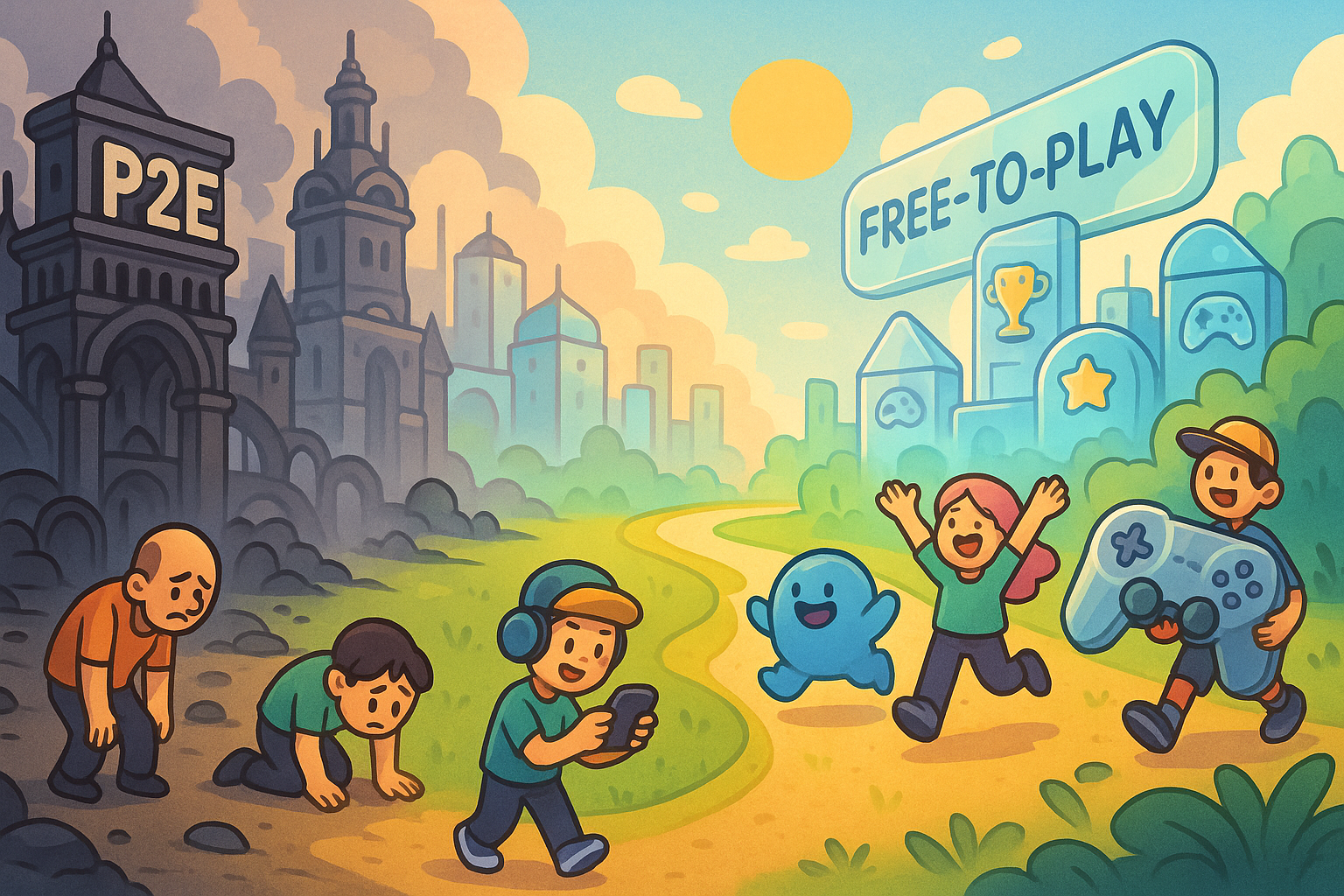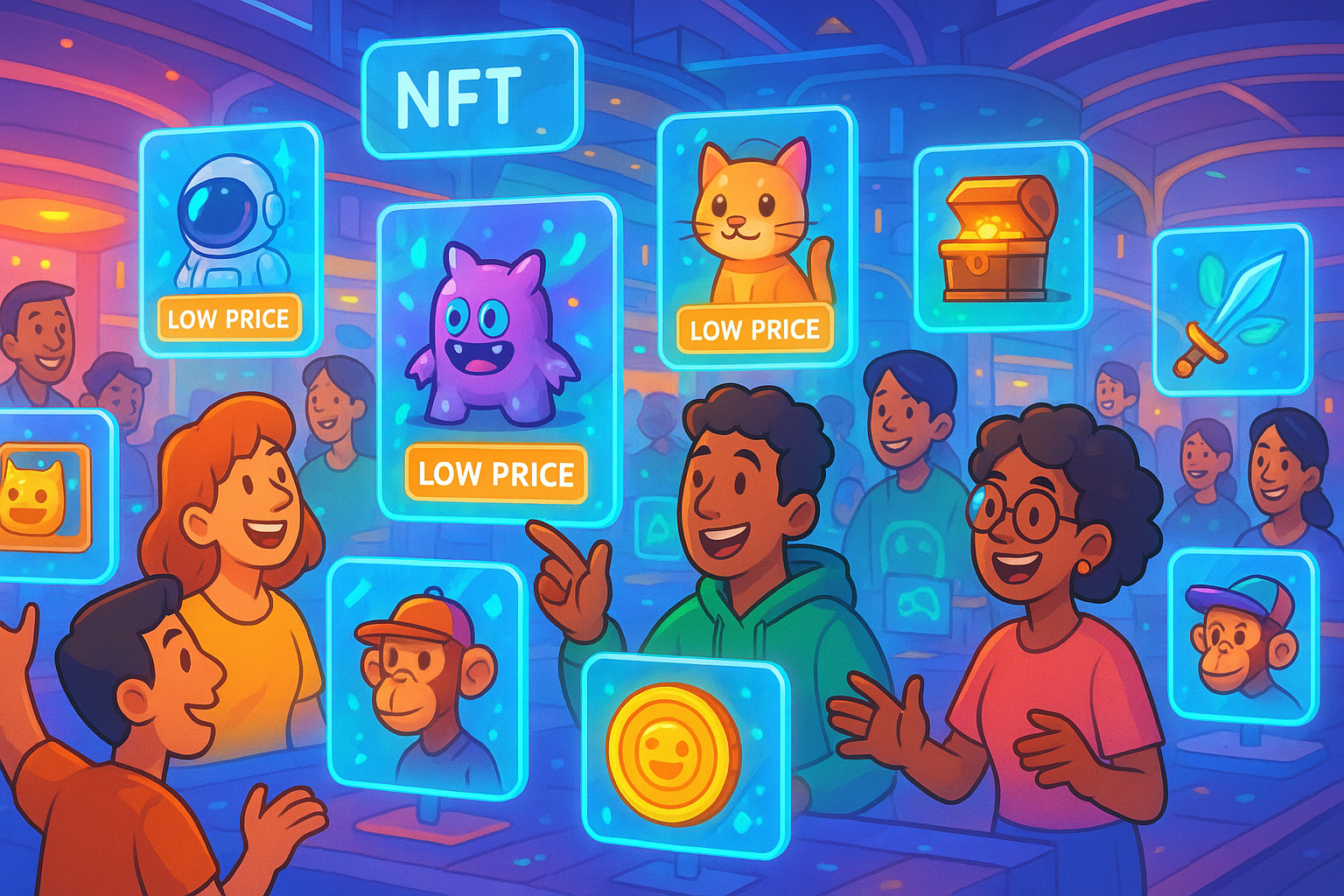P2E on a Budget: How to Get Started with Minimal Investment
The allure of Play-to-Earn (P2E) gaming is undeniable. Imagine transforming your passion for gaming into a tangible source of income, where your in-game achievements and time spent translate into real-world value. For many, the dream of earning cryptocurrency or valuable NFTs while having fun sounds like the perfect fusion of entertainment and financial opportunity. However, a common misconception often deters newcomers: the belief that P2E is an exclusive club requiring significant upfront capital, particularly for purchasing expensive Non-Fungible Tokens (NFTs) to even begin playing. This couldn't be further from the truth in today's evolving Web3 gaming landscape.
While early P2E iterations, popularized by games like Axie Infinity during its peak, often demanded substantial initial investments, the industry has matured considerably. Developers are increasingly recognizing the importance of accessibility, innovation, and a sustainable economy that caters to a broader audience. This shift has paved the way for numerous opportunities to get started in P2E with minimal, or even zero, initial financial outlay. If you've been curious about P2E but hesitated due to budget concerns, this comprehensive guide will equip you with the knowledge and strategies to dive in, demonstrating that your time, skill, and strategic thinking can be far more valuable than a deep wallet.
The Evolving Landscape of Accessible P2E
The narrative around P2E is changing. What was once seen as "pay-to-earn" is now more accurately described as "play-and-earn" or "skill-to-earn." This evolution is driven by several factors: increased competition among game developers, a focus on broader user adoption, and the realization that a healthy game economy thrives on active participation, not just high entry barriers. Modern P2E projects are experimenting with diverse economic models to ensure longevity and appeal, meaning more entry points for budget-conscious players.

Strategy 1: Embrace Free-to-Play (F2P) P2E Games
The most straightforward path to P2E on a budget is through games that offer a free entry point. Many Web3 games now adopt a hybrid model, allowing players to start without purchasing NFTs. You can download and play, earn basic in-game tokens, or even foundational NFTs purely through gameplay, daily quests, or achieving specific milestones. These earned assets can then be upgraded, used to unlock more lucrative earning opportunities, or potentially sold on secondary marketplaces once you've accumulated enough. The key here is patience and consistent engagement. Instead of investing money, you're investing your time and effort to build your in-game portfolio from the ground up.
Look for genres that traditionally lend themselves well to F2P models, such as card battlers, strategy games, casual mobile games with daily rewards, or even metaverse-style experiences where you can earn by contributing content or participating in events. Always check the game's whitepaper to understand how the free-to-play economy integrates with the earn mechanics and how long it typically takes to start seeing tangible rewards for F2P users.
Strategy 2: Leverage Scholarship Programs and Gaming Guilds
Scholarship programs have been a game-changer for budget P2E players and remain one of the most popular and effective methods to enter the space with zero upfront investment. These programs, often managed by gaming guilds or individual NFT owners, allow you to "rent" the necessary NFTs to play a particular P2E game. In return for using their assets, you share a percentage of your in-game earnings with the NFT owner. It's a win-win: you gain access to earning opportunities without the financial burden, and the NFT owner earns passive income from their assets.
To find scholarship opportunities, delve into the vibrant P2E community. Discord servers dedicated to specific games or general Web3 gaming guilds are excellent starting points. Reputable guilds often have structured application processes, clear earning split agreements, and community support for scholars. Always perform due diligence: research the guild, read reviews, and understand the terms of the scholarship agreement before committing. Look for transparency and an active, supportive community.
Strategy 3: Seek Out Low-Cost NFT Entry Points
While some P2E games feature high-priced NFTs, many others offer very affordable starter packs or individual NFTs that serve as your entry ticket. This strategy requires diligent research and timing. Often, newer games in their early launch phases or projects that aren't yet trending heavily on social media might have cheaper NFTs. These are generally less hyped, offering a chance to acquire assets at a lower price before potential market appreciation.

When pursuing this route, prioritize utility over perceived rarity. A common, inexpensive NFT that allows you to fully participate in the game's earning mechanics is often a better investment than a slightly rarer, but still expensive, one if your primary goal is to start earning. Keep an eye on secondary NFT marketplaces, as prices can fluctuate, and you might snag a good deal during market dips or when new collections are released.
Strategy 4: Focus on Skill-Based Earning and Competitive Play
For gamers with a competitive edge, some P2E models reward skill directly. If you excel at a particular game genre, you can leverage your abilities to earn more. This might involve participating in tournaments, climbing ranked ladders, or completing challenging quests that yield higher rewards. Games with a strong esports component integrated with their P2E economy are ideal for this strategy. Your primary investment here is time spent honing your skills and mastering game mechanics, rather than initial capital.
This approach often appeals to seasoned gamers who are already accustomed to dedicating hours to perfecting their craft. While the entry point might still involve some basic NFT acquisition (which could be covered by the low-cost strategies or scholarships), your earning potential will be directly proportional to your performance and strategic prowess, allowing you to out-earn players who simply rely on owning high-tier assets.
Strategy 5: Engaging with Emerging Projects and Early Adopter Advantage
Being an early adopter of promising new P2E projects can offer significant advantages for budget players. Many emerging Web3 games, especially those in their alpha, beta, or early public launch phases, often incentivize early community participation. This can come in the form of free airdrops of foundational NFTs or tokens, opportunities to participate in testnets for exclusive rewards, or simply cheaper initial NFT mints before the project gains widespread traction.
This strategy carries a higher risk due to the unproven nature of new projects, but the potential rewards can be substantial if you identify a successful game early on. Engage with project communities on Discord, follow their development updates, and participate in any free-to-enter events or promotions. Your contribution as an early tester or community member can be highly valued and monetized.
Finding the Right Game: Research is Your Most Valuable Asset
Regardless of which budget strategy you choose, thorough research is paramount. In the fast-paced and sometimes volatile world of Web3 gaming, making informed decisions is crucial to mitigate risks and maximize your earning potential.
- Whitepapers and Roadmaps: Always read the project's whitepaper to understand its vision, game mechanics, tokenomics (how the in-game currency works), and future development plans. A clear, well-articulated roadmap indicates a serious project.
- Community Engagement: Join the game's official Discord, Telegram, and follow their social media channels (Twitter, Reddit). An active, positive, and transparent community is a good indicator of a healthy project. Observe how the developers interact with their player base.
- Gameplay and Fun Factor: Don't just chase potential earnings. Choose games that genuinely interest you and that you enjoy playing. This will sustain your motivation and make the time investment feel less like a chore and more like entertainment.
- Team and Transparency: Research the development team behind the project. Are they doxxed (publicly known)? Do they have a track record in gaming or blockchain? Transparency from the team builds trust.
- Tokenomics and Economy: Understand how the in-game economy is designed to be sustainable. Look for mechanisms that prevent hyperinflation of tokens and encourage long-term player engagement and value creation.

Maximizing Your Earnings with Minimal Investment
Once you've entered a P2E game on a budget, the next step is to optimize your earning potential. Remember, your primary investment is your time and strategic thinking.
- Consistent Play and Dedication: Regular engagement, especially with daily quests or activities, is key to accumulating small earnings that add up over time.
- Master Game Mechanics: The better you understand the game, the more efficiently you can earn. Learn optimal strategies, character builds, or market timings.
- Strategic Reinvestment: Don't immediately cash out all your earnings. Reinvest a portion back into the game to upgrade your NFTs, unlock new features, or acquire better assets. This compound effect can significantly boost your long-term earnings.
- Cautious Diversification: Once you've built up a small capital base, consider cautiously diversifying into one or two other promising budget-friendly games. This spreads risk and opens up more earning avenues, but avoid overstretching your resources.
- Stay Updated: The Web3 gaming space evolves rapidly. Follow game announcements, market trends, and community discussions to stay ahead and adapt your strategies.
- Security First: Always use strong, unique passwords, enable two-factor authentication (2FA), and be extremely wary of phishing attempts or scams. Your digital assets are your responsibility.
Realistic Expectations and Risks
While P2E offers exciting opportunities, it's crucial to approach it with realistic expectations and an understanding of the inherent risks. It is not a get-rich-quick scheme. Significant earnings typically require substantial time, effort, and sometimes a degree of luck.
The cryptocurrency market is highly volatile, meaning the value of your earned tokens or NFTs can fluctuate dramatically. Projects can fail, be abandoned, or even turn out to be scams (known as "rug pulls"). Always invest only what you can afford to lose, both in terms of money and time. Prioritize the entertainment value of the game, and view any earnings as a bonus rather than a guaranteed income stream.
Conclusion: Your Journey into Budget P2E Awaits
The world of Play-to-Earn gaming is more accessible than ever before, offering a myriad of pathways for budget-conscious players to get involved. By leveraging free-to-play models, scholarship programs, low-cost entry NFTs, or your own gaming skills, you can begin your Web3 gaming journey without a hefty initial investment. Your dedication, research, and strategic approach will be your most valuable assets.
Remember to prioritize enjoyment, conduct thorough due diligence, and approach the space with a balanced perspective regarding risks and rewards. The future of gaming is evolving, blending entertainment with ownership and economic opportunity. With the right strategy, you too can be a part of this exciting revolution, proving that you don't need to break the bank to play and earn.

